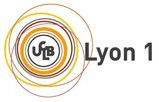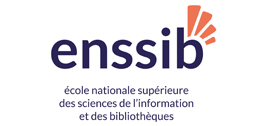Workshop on the political effects of social media
Workshop on the « Political Effects of Social Media »
Organized by Sophie Hatte (ENS de Lyon) and Jordan Loper (ENS de Lyon)
About the workshop
This event is part of the EcoNomicSDay workshop series organized at ENS de Lyon for front-line research in public and political economy. Targeting a small-size workshop (6 speakers, 20-25 participants), this series of events gathers leading-edge US-and Europe-based scholars. The 9th edition is devoted to the political effects of social media, both from a theoretical and empirical perspective. It brings together scholars in the political economy field mobilizing innovative data collection and analysis technics with frontline theoretical and econometric methodologies to provide a comprehensive analysis of the topic.
Preliminary program (subject to marginal changes within the next few days)
June 7 – Room: Amphi D2 (Descartes)
- 16h30-17h00 Welcoming coffee
- 17h00-17h45 “TBA”, Horacio Larreguy (ITAM Mexico)
- 17h45-18h30 “Facebook and the Political Prospects of Women in Sub-Saharan Africa”, Jordan Loper (ENS de Lyon)
- 20h00 Dinner with the speakers
June 8 – Room: Amphi D2 (Descartes)
- 09h00-09h45 “Social Media and Xenophobia: Evidence from Russia” Maria Petrova (Barcelona GSE)
- 09h45-10h30 “Facebook Causes Protests” Leopoldo Fergusson (Universidad de los Andes)
- 10h30-11h00 Coffee break
- 11h00-11h45 “Internet Access, Social Media, and the Behavior of Politicians: Evidence from Brazil” Claudio Ferraz (University of British Columbia)
- 11h45-12h30 “The Effect of Social Media on Elections: Evidence from the United States” Carlo Schwarz (Bocconi University)
Bio of the participants
Leopoldo Fergusson is Professor of Economics at Universidad de los Andes. He works on political economy and development economics, which often draw him into economic history. He is the director of CEDE, the research center of the Department of Economics at Universidad de los Andes.
Claudio Ferraz is Professor of Economics at the Vancouver School of Economics, University of British Columbia. His academic research focuses on economic development, political economy, and public economics. In particular he studies governance and accountability in developing countries and consequences for politics and public service delivery.
Jordan Loper is a postdoc fellow at ENS de Lyon. His research interests are at the intersection of Development Economics, Cultural Economics and Political Economy. Recently, he have opened a new research agenda on the impact of social media on political outcomes in developing countries.
Horacio Larreguy is Associate Professor of Economics and Political Science at the Instituto Tecnológico Autónomo de México (ITAM) in Mexico City. His research interests include political
economy and development economics using both theory and empirics. Recently, motivated by the COVID-19 infodemic, he is working on various projects on misinformation in Bolivia, South Africa, and Zimbabwe.
Maria Petrova is an ICREA Research Professor at the Universitat Pompeu Fabra and Affiliate Professor at Barcelona Graduate School of Economics. She works on political economy, mass media and corporate governance.
Carlo Schwarz is Assistant Professor at Bocconi University. His research interests covers political economy and social media, with a focus on hate crime, polarization and elections.










